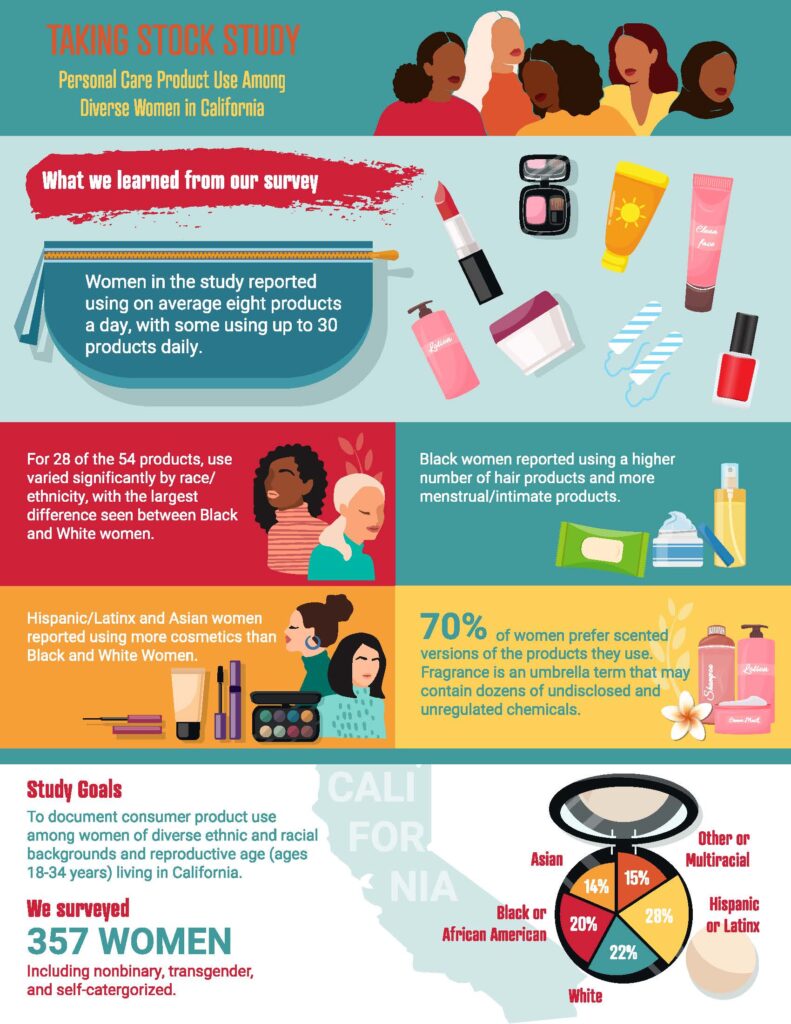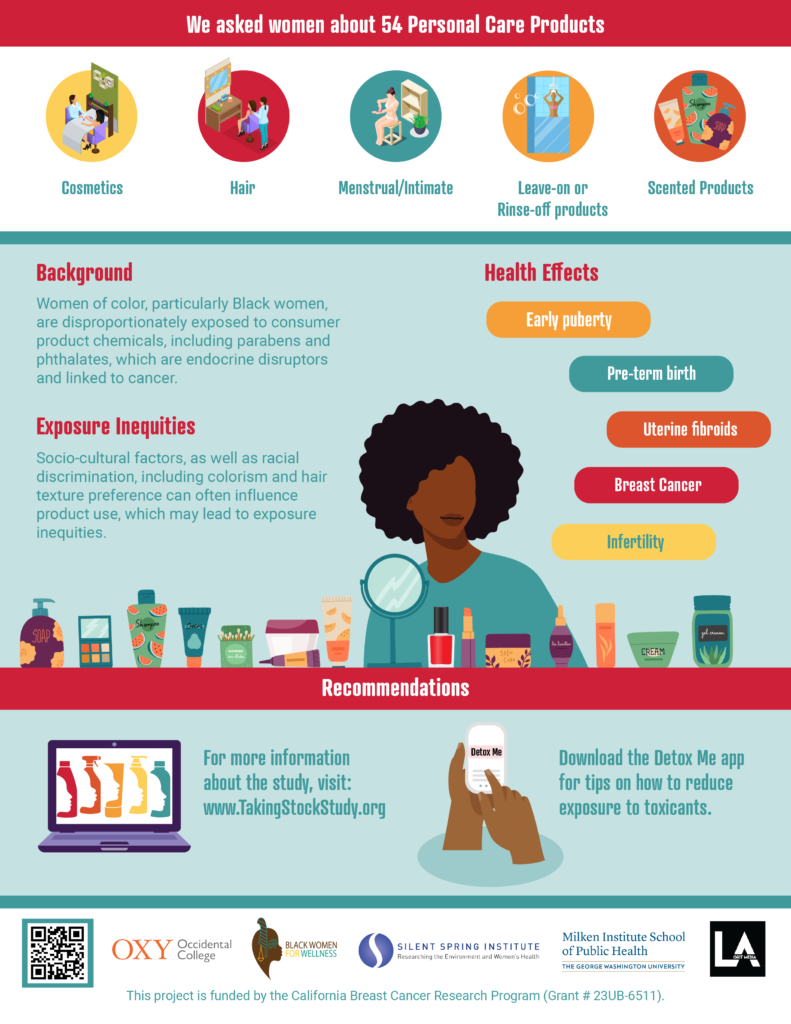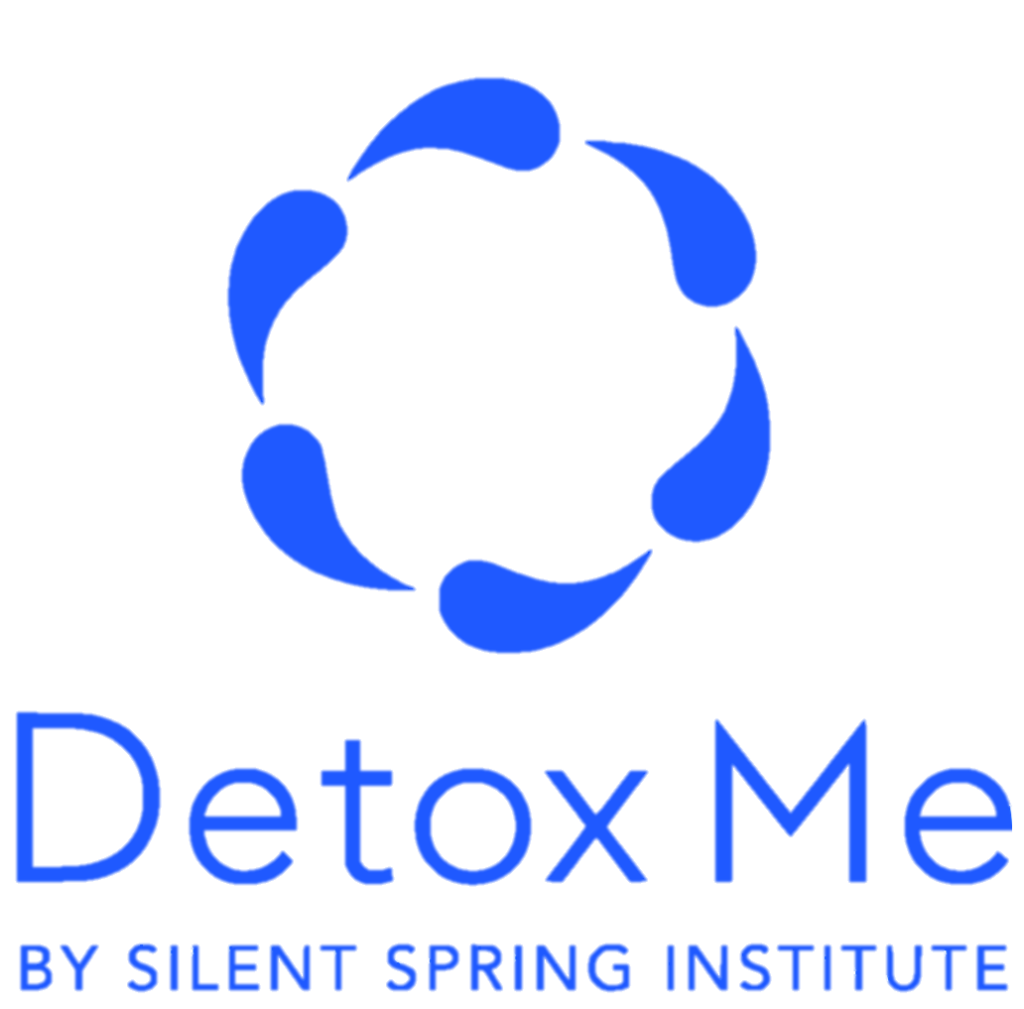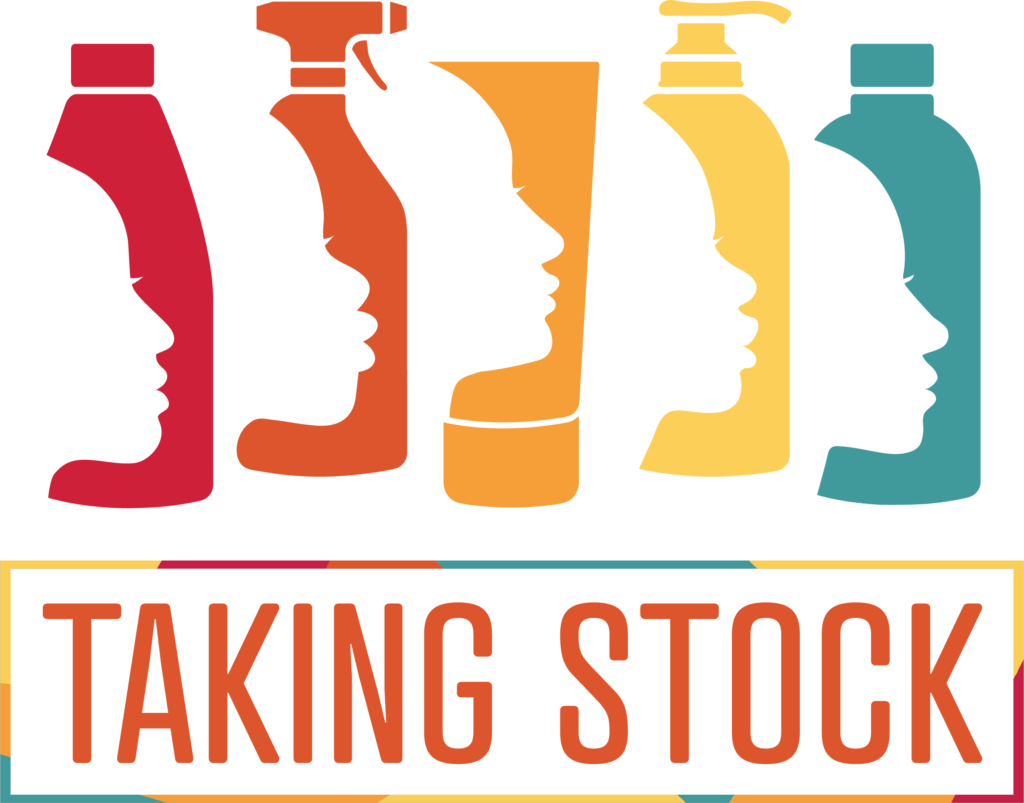
The Taking Stock study seeks to explore the impacts of beauty products on Black and Latina women in California.
Our community-driven pilot study is guided by the overall hypothesis that consumer product use patterns contribute to exposure and health inequities observed in Black and Latina women in California.
Want to participate in our study?
We are currently recruiting for our Taking Stock Study on safer hair products for black women.
Taking Stock App English Tutorial
Taking Stock App Spanish Tutorial
About Our Research
Our goal is to understand if the products used by women of color might harm their health.
The Environment & Our Health
The public health burden of breast cancer and other reproductive illnesses in California is immense. Breast cancer is the most common cancer among women in California. However, women are not affected equally by the disease as there are significant racial/ethnic differences in incidence and mortality. While the rate of new breast cancer diagnoses have historically been highest among White women, rates among Black women have been rising and rates are now converging with those of White women. Mortality remains highest among Black women, who on average, are diagnosed at younger ages and have more aggressive forms of the disease. New breast cancer diagnoses and mortality rates are lower among Latinas; however, breast cancer is the most common cancer among Latinas.
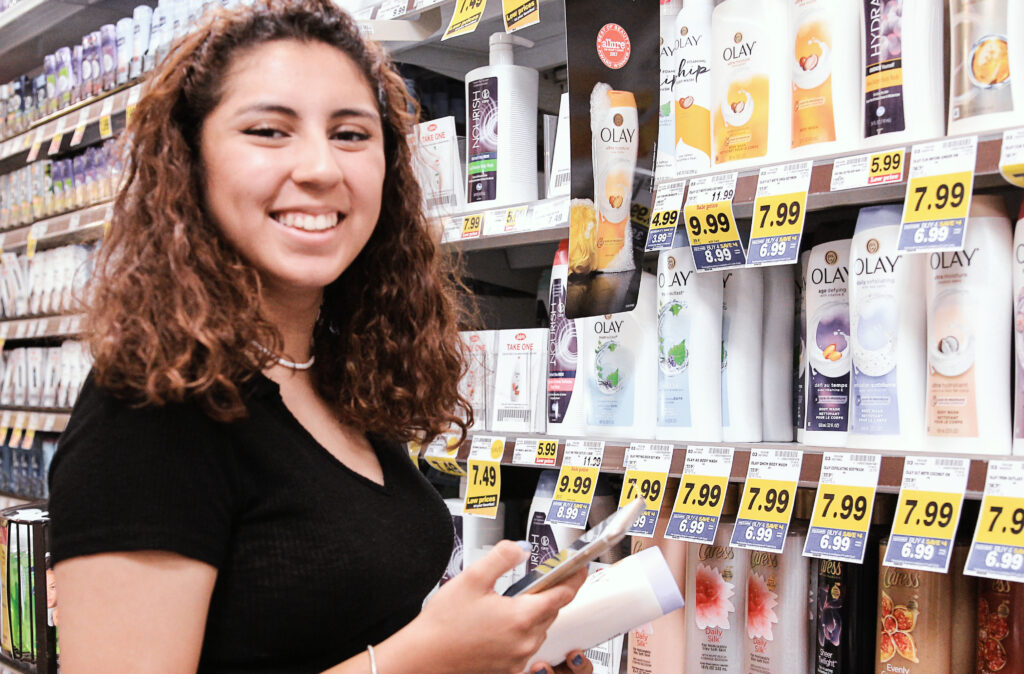
Our Research Questions
Case Study in South Los Angeles

The Taking Stock Study advances research on consumer product chemicals and health impacts by combining our community capacity to collect data with multidisciplinary research in environmental exposure science, epidemiology, environmental justice, breast cancer toxicology, and qualitative research methods.
What We Found
Taking Stock Study: Personal care product use among diverse women in CA.
What we learned: Women in the study reported using, on average, 8 products a day, with some using up to 30 products daily.
For 28 of the 54 products, use varied significantly by race/ethnicity, with the largest difference seen between Black and White women.
Black women reported using a higher number of hair products and more menstrual/intimate products.
Hispanic/Latinx and Asian women reported using more cosmetics than Black and White women.
70% of women prefer scented versions of the products they use. Fragrance is an umbrella term that may contain dozens of undisclosed and unregulated chemicals.
We asked women about 54 personal care products: cosmetics, hair, menstrual/intimate, leave-on or rinse off products, scented products.
Background: Women of color, particularly Black women, are disproportionately exposed to consumer product chemicals, including parabens and phthalates, which are endocrine disruptors and linked to cancer.
Exposure inequities: Socio-cultural factors, as well as racial discrimination including colorism and hair texture preference can often influence product use, which may lead to exposure inequities.
Health Effects: Early puberty, pre-term birth, uterine fibroids, breast cancer, infertility.
Recommendations to reduce the effects:

Reduce your use of fragranced products.

Reduce your overall product use.

Try to find and use products without parabens and phthalates. Look up your products on one of the apps below:

Shop local, small batch product lines. Find some here.

Get involved in chemical policy reform to make our products safer.
